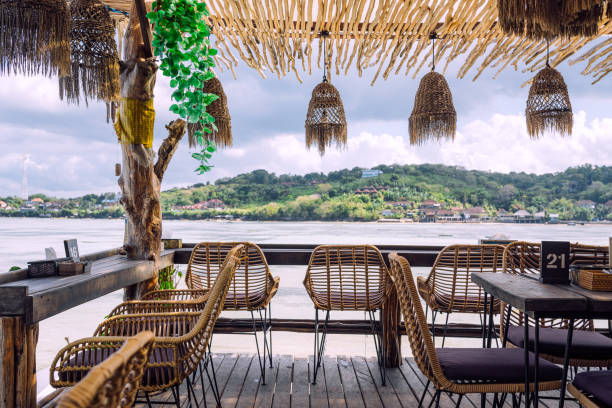How to Start a Restaurant in Indonesia: Legal Guidance by The Bali Lawyer



Opening a restaurant in Indonesia, especially in prime tourist locations like Bali, is an attractive business opportunity for many foreign investors and entrepreneurs. Indonesia’s growing economy, vibrant food culture, and booming tourism industry make it an ideal location to establish a successful dining business. However, navigating the legal and regulatory framework can be complex, particularly for foreigners unfamiliar with Indonesian laws.
At The Bali Lawyer, we specialize in helping clients successfully launch restaurant businesses in Bali and across Indonesia by providing expert legal guidance every step of the way. This page outlines everything you need to know about starting a restaurant legally in Indonesia, ensuring your venture is fully compliant from day one.
Why Indonesia Is an Ideal Place to Start a Restaurant
Indonesia’s hospitality and food service industry continues to expand, driven by rising domestic consumption and international tourism. Bali, in particular, offers:
A high influx of tourists year-round.
A strong demand for international and local cuisine.
Diverse consumer demographics.
A supportive hospitality infrastructure.
From beachfront cafes to fine-dining establishments, there’s room in the market for many types of restaurant ventures.
Legal Entity Options for Foreign Investors
The first step in legally operating a restaurant in Indonesia as a foreigner is determining the appropriate business structure. There are a few options, but the most suitable and common for foreigners is establishing a Foreign Investment Company (PT PMA).
1. PT PMA (Penanaman Modal Asing)
This is the only legal entity that allows foreign ownership. With a PT PMA, foreign investors can operate a restaurant and apply for business and work permits. It requires:
Approval from the Indonesia Investment Coordinating Board (BKPM).
A local business address.
A business plan and a relevant line of business classification (KBLI).
2. Local Nominee Company
Although not legally encouraged or safe, some investors use local nominees to register a company in their name. However, this route is highly discouraged due to potential legal risks and lack of control over the business.
Required Licenses and Permits
Operating a restaurant in Indonesia requires several mandatory licenses and permits. Failure to obtain or maintain these may result in legal sanctions or closure. Our legal team assists clients in securing the following:
1. Business Identification Number (NIB)
The NIB is obtained through the Online Single Submission (OSS) system and acts as a national business registration number. It is required for all operational and commercial activities.
2. Location Permit
You must obtain a location permit that ensures your restaurant is built and operated in an approved zone according to local spatial regulations.
3. Building Permit (PBG)
For new constructions or modifications, a PBG is mandatory to ensure compliance with local building codes and zoning laws.
4. Food and Beverage License
Issued by the local government, this license is required to operate any food service business. It covers food safety standards and operational criteria.
5. Environmental Impact Permit (UKL-UPL or AMDAL)
Depending on the size of your restaurant, an environmental license may be required to assess the environmental impact of your operations.
6. Alcohol License (SIUP MB)
If you plan to serve alcoholic beverages, an additional license is required. Indonesia has strict rules on the sale and distribution of alcohol, and licensing requirements vary by region.
Tax and Employment Compliance
Once registered, your business must comply with Indonesian tax and labor regulations.
Tax Obligations
Your PT PMA must register for a Taxpayer Identification Number (NPWP).
Regular reporting of corporate tax, value-added tax (VAT), and employee taxes is mandatory.
You must issue tax invoices for all business transactions.
Hiring Employees
Foreign and local employment is governed by the Ministry of Manpower. Foreigners need a work permit (IMTA) and stay permit (KITAS), while locals must be employed under lawful contracts with proper social security and health insurance coverage.
At The Bali Lawyer, we manage all documentation and liaise with the appropriate government departments on your behalf.
Restaurant Location Considerations
The location of your restaurant plays a crucial role in its success and legal approval. Before signing a lease or buying a property, you should:
Check zoning restrictions.
Ensure the building is properly certified.
Confirm that the location is eligible for business licensing.
Conduct environmental and community impact assessments if needed.
We provide legal due diligence services to ensure you avoid issues with land use, licensing, and long-term viability.
Branding and Trademark Registration
Protecting your brand is essential when starting a restaurant. The Bali Lawyer can assist with:
Registering your restaurant name and logo with the Directorate General of Intellectual Property (DGIP).
Ensuring your brand cannot be copied or used by others.
Drafting franchise agreements if you plan to expand or license your restaurant.
Legal Contracts and Agreements
As part of starting your business, a range of legal documents must be prepared and reviewed:
Lease agreements with landlords.
Employment contracts.
Vendor and supplier agreements.
Joint venture or shareholder agreements, if applicable.
Our legal team ensures that all your contracts are compliant with Indonesian law, clearly protecting your rights and obligations.
Post-Establishment Compliance
Starting your restaurant is only the beginning. Indonesia’s legal system requires businesses to stay compliant over time:
Renewing licenses regularly.
Updating corporate information with the authorities.
Filing monthly and annual tax returns.
Maintaining employee records and labor documentation.
We offer ongoing compliance services to manage all renewals, filings, and updates, allowing you to focus on running your business.
Handling Inspections and Legal Disputes
It is common for restaurants to be subject to inspections from health, labor, tax, or licensing authorities. Our firm provides representation and guidance during any official audit, inspection, or investigation.
If a dispute arises—whether with staff, landlords, suppliers, or regulatory bodies—our team is ready to offer dispute resolution, mediation, or litigation support to protect your business interests.
Step-by-Step Summary to Start a Restaurant in Indonesia
Decide on your legal entity (typically PT PMA).
Secure necessary permits through OSS and local offices.
Choose and verify your location based on zoning and land use.
Prepare operational licenses including food, alcohol, and environment.
Register for tax and comply with labor law.
Trademark your brand and draft important legal contracts.
Launch operations with full legal compliance.
Maintain post-launch compliance and legal documentation.
Why Choose The Bali Lawyer?
Starting a restaurant in Indonesia requires more than just a great menu and concept—it requires precise legal execution. At The Bali Lawyer, we provide a full range of legal services tailored specifically to entrepreneurs entering the hospitality industry. From company registration and licensing to compliance and dispute resolution, we are your trusted legal partner in Bali.
With in-depth knowledge of Indonesian business law, strong relationships with local authorities, and a dedicated legal team fluent in English and Bahasa Indonesia, we ensure your restaurant is launched smoothly and operates with full legal protection.
Contact The Bali Lawyer today to schedule a consultation and begin your restaurant journey in Indonesia the right way.
